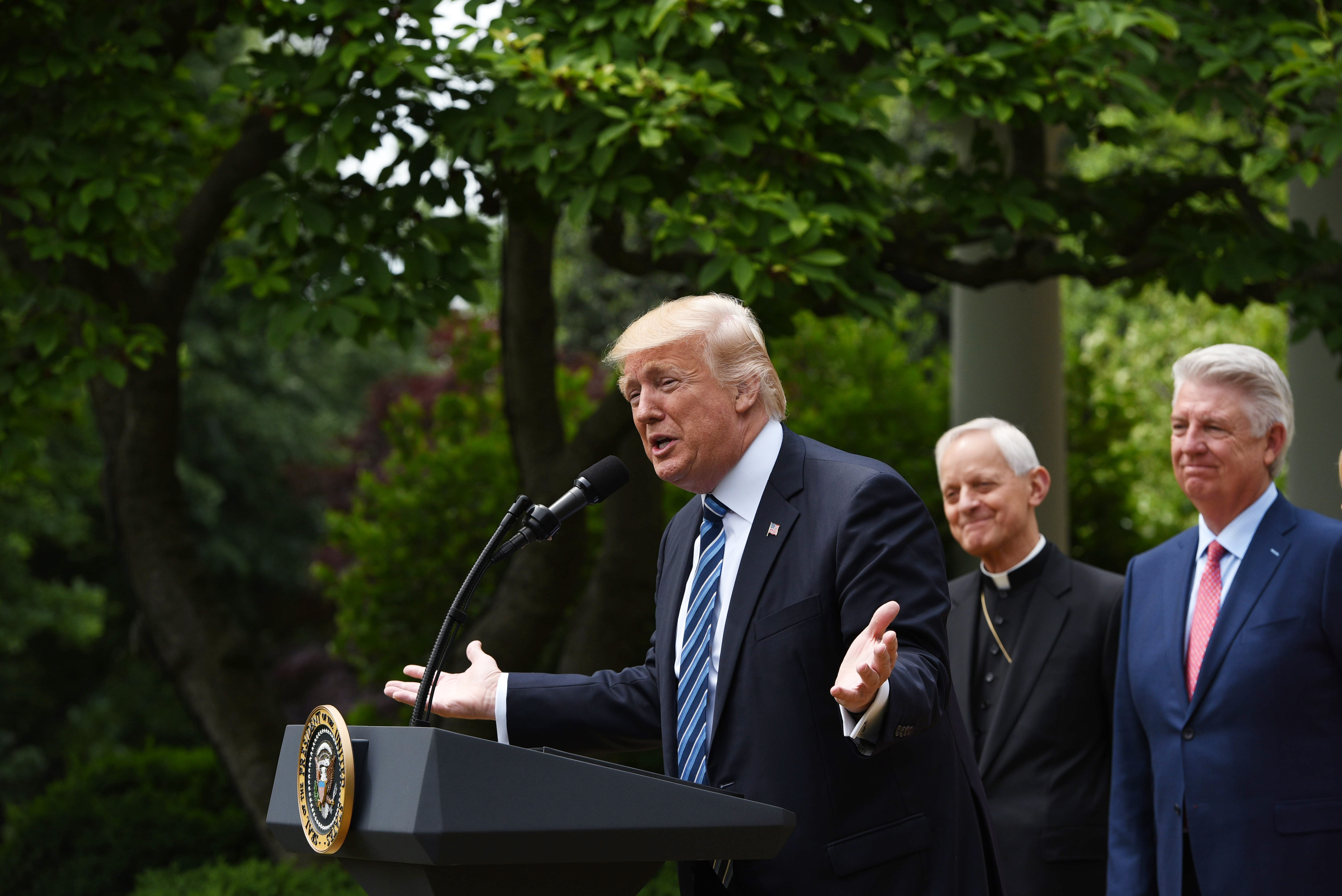
This article originally appeared on Time.
When the leaders of nearly 200 countries celebrated reaching the landmark Paris Agreement in December 2015 after years of false starts, they thought they had finally addressed the issue in a way that would resist the whims of leaders less inclined to act on climate change.
The deal gave countries—and government officials—the freedom to set their own voluntary targets and to revise them as they saw fit. Failure to meet them would only hurt the country’s reputation.
But these climate change negotiators, many of whom had worked to build international bridges on the issue since the early 1990s, could not have imagined the likes of President Trump. The American president came into office after promising to “cancel” the deal and after months of reconsidering has now told aides he plans to do just that. He said late Wednesday night that he will make his formal announcement at 3 p.m. E.T. on Thursday.
That move would reject the more moderate option of simply revising President Obama’s emissions reductions targets, instead taking the U.S. out of the international discussion on climate change. Policy experts, business interests and environmental groups say it will hurt not only global efforts to address climate change but also U.S. standing in the world while doing little to revive the U.S. fossil fuel industry.
Here’s a look at three major costs of withdrawal.
Efforts to address climate change
The Paris Agreement aims to keep global temperatures from rising more than 2°C (3.6°F) by 2100 with an ideal target of keeping temperature rise below 1.5°C (2.7°F). Those targets were ambitious when negotiators included them in the deal two years ago, and hitting them now appears even even more unlikely. The most obvious reason for the lessening chances is the simple loss of U.S. commitment to reducing greenhouse gas emissions. The country is the world’s largest economy and second greatest polluter, and losing its commitment to addressing the issue makes a significant difference.
The other risk posed by a U.S. withdrawal is that it might encourage other countries to weaken their resolve. Indeed, the lack of U.S. commitment to the issue had been a sticking point prior to the Obama Administration and even then many developing countries wanted guarantees that the U.S. would pay its fair share given its unmatched historic contribution to the emissions of the pollutants that cause global warming.
It seems unlikely that the U.S. withdraw will doom the deal altogether—and the commitments to addressing climate change that come along with it—given that the biggest countries like China and the European Union will benefit economically from an energy transition. But smaller developing countries may choose to continue investing in fossil fuels without U.S. leadership. And some of the financial commitments to helping developing countries have lagged following a lack of commitment in the U.S.
American investment in alternative energy sources
Addressing climate change presents an enormous economic opportunity as countries change the way they power their economies with global investment in clean energy totaling nearly $300 billion in 2016. Withdrawing from the Paris Agreement means the U.S. will lose out on the opportunity to help build the green economy of the future—and benefit from the jobs and economic growth that come along with that.
The potential economic gains of the new energy economy will depend largely on which countries develop and supply the energy needs of the future. China, for instance, has invested in the capability to build solar panels and will likely control the future of that sector. German Chancellor Angela Merkel attended a ceremony for a new battery factory last week in Germany, calling for her country to help become a leading supplier of electric cars. A U.S. withdrawal from Paris signals to investors and other countries that the U.S. has little interest in capturing that market.
The relationship with China and Europe
Trump’s move to leave the Paris Agreement is perhaps the biggest snub he could deliver to America’s European allies short of leaving NATO. World leaders, particularly those in Europe, have warned Trump with increasing urgency as his presidency unfolded that withdrawing from the deal would be a mistake. And at the same time they have offered him the diplomatic leeway to weaken the U.S. commitment to fighting climate change. Still, Trump declined to sign on to a joint statement endorsing the deal following the G-7 summit last week and in the days that followed many leaders distanced themselves from Trump and their country’s historic ties to the U.S.







Looking ahead, lack of agreement on climate change more broadly will complicate relations with other nations. The U.S. will act as the lone dissenter in meetings with allies whenever climate change is mentioned—including in the context of national security—and be excluded from other discussions entirely, including upcoming meetings hosted by China and the European Union.
In relations with countries like China, where relations have been tense, climate change has acted as an area of common ground that has allowed the U.S. to strengthen ties even as other issues stressed the relationship. That would now be lost.
The U.S. also has few, if any, allies in this fight. Nicaragua and Syria are the only other countries that do not support the Paris Agreement—and both do so for entirely different reasons.








